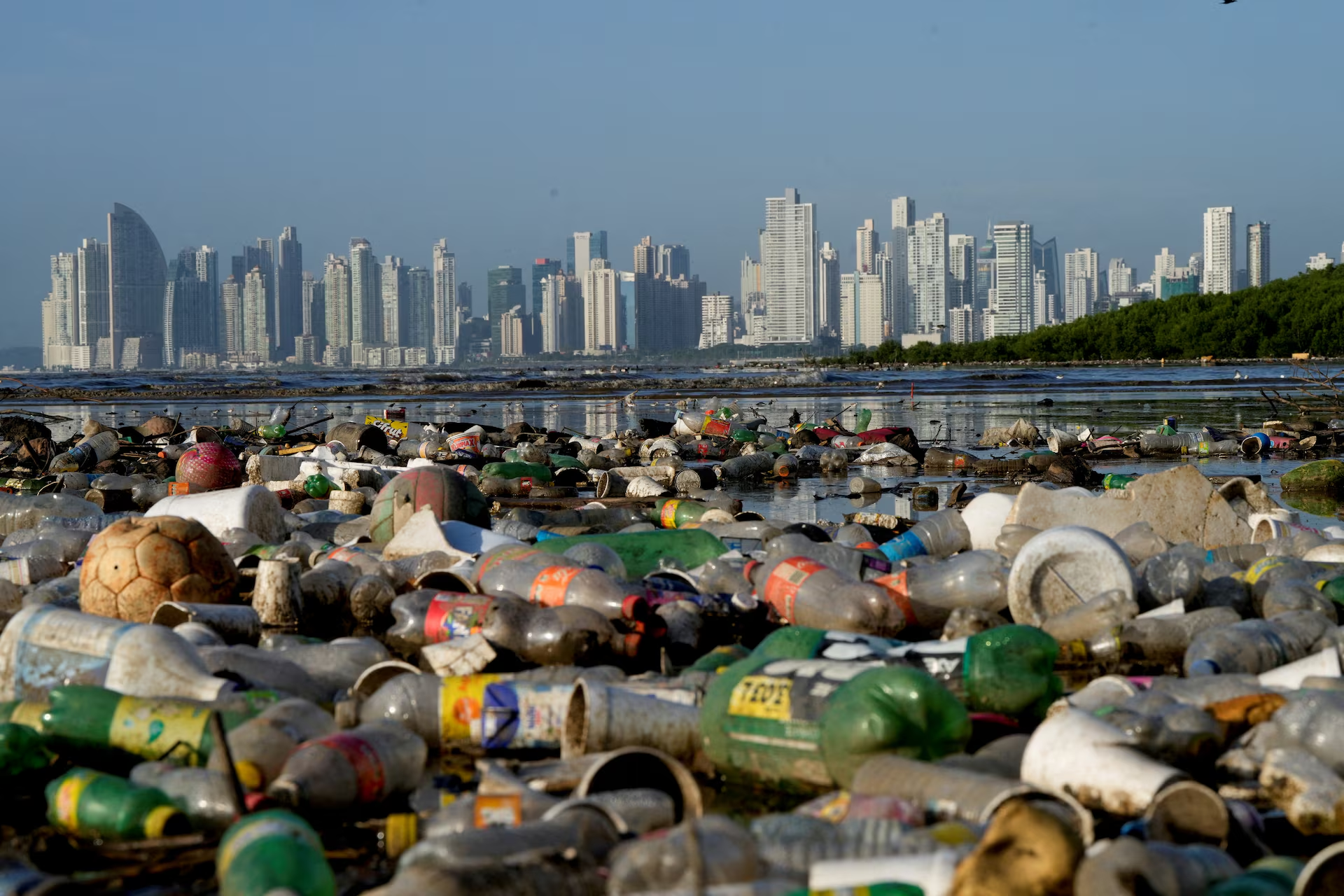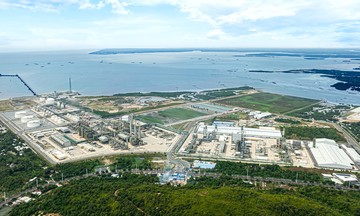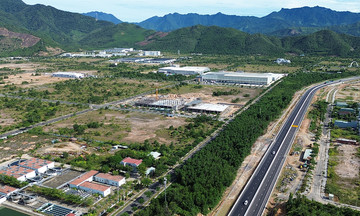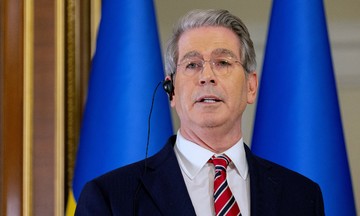The sixth intergovernmental negotiating committee (INC 5.2) on a global plastics treaty concluded on 15/8 in Geneva, Switzerland, without reaching an agreement after 11 days of negotiations.
Negotiations for the treaty, initiated in 2022, remain stalled. The two main sticking points are reducing the exponential growth of the plastics industry and controlling toxic chemicals in the production of plastic materials.
 |
Plastic pollution in a mangrove area in Panama Bay, Panama on 6/12/2024. Photo: Reuters |
Plastic pollution in a mangrove area in Panama Bay, Panama on 6/12/2024. Photo: Reuters
Plastic production uses 16,000 chemicals, ranging from monomers and catalysts to processing aids and additives such as plasticizers, flame retardants, fillers, dyes, and stabilizers. A study published earlier this month by professors from Boston University (USA), the University of Western Australia, and the University of Gothenburg (Sweden) found that just three of these chemicals—BPA, flame retardants, and plasticizers—were linked to nearly 6 million cases of heart disease, stroke, and intellectual disabilities in children born in 2015, causing economic damage of USD 1,500 billion.
Luis Vayas Valdivieso, chair of the negotiating committee, presented two draft treaties based on the views of different nations, but representatives from 184 countries rejected both. The first draft did not address limits on plastic production or toxic chemicals. The second draft did not set limits on plastic production but acknowledged that current production and consumption levels are "unsustainable" and require global action.
Representing the oil-producing nations, the Saudi Arabian representative stated that both drafts lacked balance and did not adequately consider the perspectives of other groups. They argued that the draft addressing plastic production fell outside the scope of the treaty.
Colombian representative Haendel Rodriguez said the agreement was "blocked by a small number of countries that do not want to reach an agreement", specifically pointing to the oil-producing nations.
Virgin plastic is produced from petroleum, coal, and natural gas. Earlier this month, climate scientists warned that efforts by the European Union and small island nations to limit plastic production are facing opposition from oil-producing countries, including the USA under President Donald Trump. John Thompson from the US Department of State declined to comment upon leaving the negotiations.
Anti-plastics campaigners expressed disappointment with the outcome but welcomed the rejection of a weak agreement that didn't set limits on plastic production. "No treaty is better than a bad treaty," said Ana Rocha, Global Plastics Policy Director at the environmental organization GAIA.
There is no clear indication of when negotiations will resume. Many delegates acknowledged the need to learn from this experience and find a new approach.
Having spent eight years negotiating the Montreal Protocol on substances that deplete the ozone layer, Micronesia's representative Dennis Clare said he was familiar with this type of obstruction from oil-producing nations.
"The point of failure is not the negotiations themselves, but the logic of continuing or reaching an agreement where there are ‘dedicated obstructers’," Clare said. He added that negotiating in a multilateral forum with nearly 200 countries is always challenging, but "it is especially difficult without agreement on the objective."
Clare suggested considering negotiations without the involvement of the "obstructers"—the oil-producing nations—to address the plastic pollution problem.
Bao Bao (according to Reuters, The Guardian)












